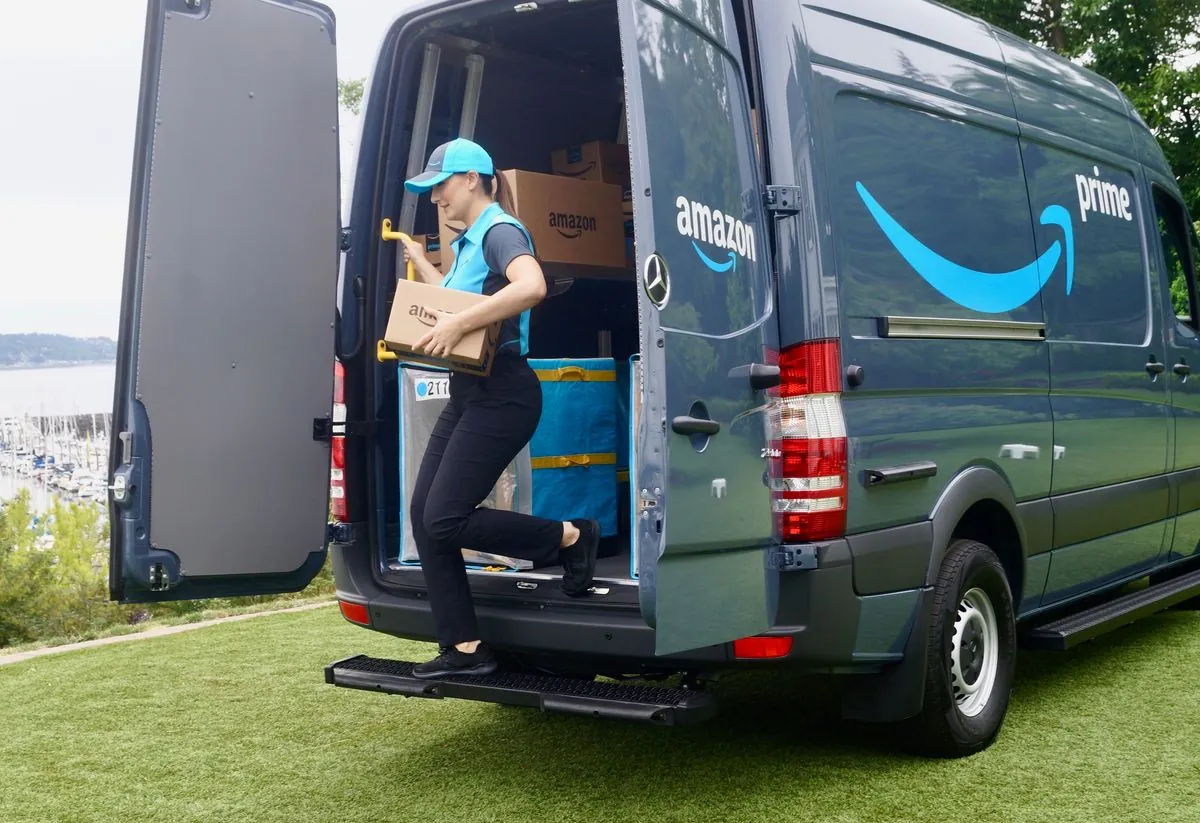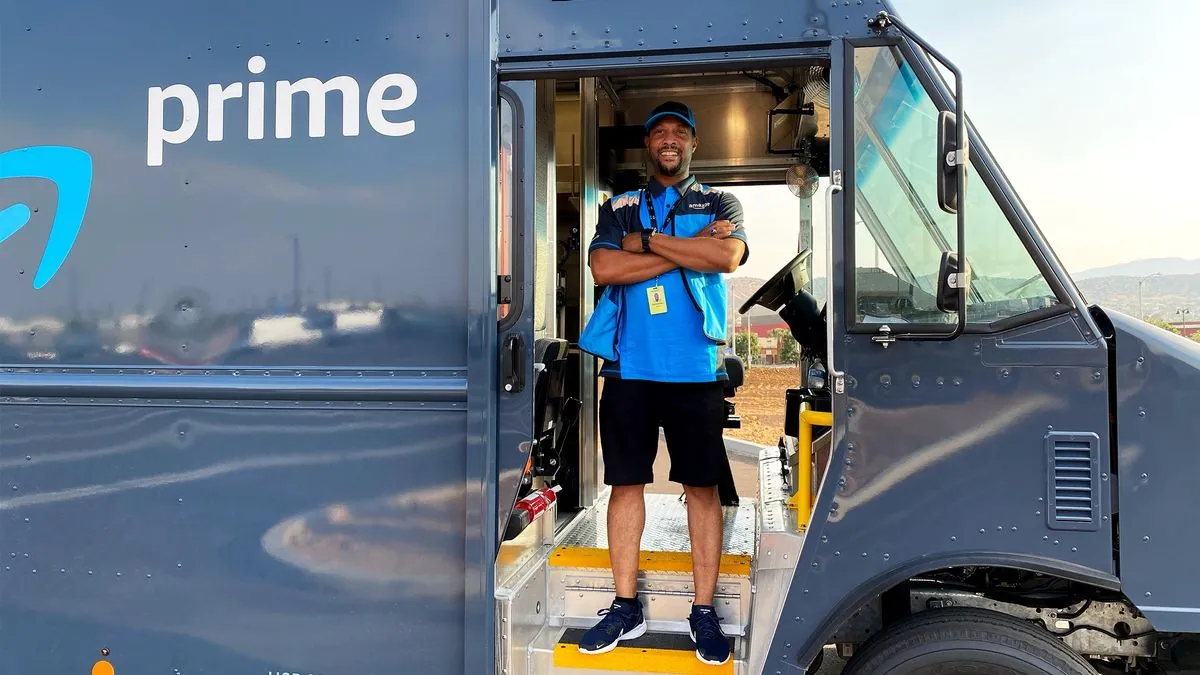NLRB Challenges Amazon's Stance on Delivery Driver Employment Status
NLRB regional director deems Amazon joint employer of some contractor drivers, potentially forcing union negotiations. Decision stems from Palmdale, California case, with Amazon disputing the interpretation.

In a significant development for labor relations in the e-commerce sector, a regional National Labor Relations Board (NLRB) director has determined that Amazon is a joint employer of certain contractor delivery drivers. This decision, announced on August 22, 2024, challenges Amazon's long-held position and could potentially compel the company to engage in union negotiations.
The ruling stems from a case in Palmdale, California, where delivery drivers voted to unionize in 2023, marking a first for Amazon's delivery workforce. The NLRB director found that Amazon failed to bargain in good faith following this unionization effort. Additionally, the company was accused of illegally targeting drivers with termination threats and conducting unlawful captive audience meetings.
This determination contradicts Amazon's previous arguments that it should not be held responsible for alleged union-busting activities or required to negotiate with driver unions. The company has maintained that these drivers, who operate Amazon-branded vans, are employed by third-party contractors known as Delivery Service Partners (DSPs).

The NLRB's decision is particularly noteworthy given Amazon's significant presence in the e-commerce landscape. Founded by Jeff Bezos in 1994, Amazon has grown to become the world's largest e-commerce retailer as of 2021, with net sales reaching $514 billion in 2022. The company's workforce has expanded to over 1.6 million people worldwide, making labor relations a crucial aspect of its operations.
The Teamsters union, which represents over 1.2 million workers across various industries, has been actively working to unionize Amazon workers since 2021. Earlier this year, the Teamsters announced a formal partnership with the Amazon Labor Union, which focuses on organizing warehouse workers in locations such as New York and Kentucky.
Sean O'Brien, president of the Teamsters, described the NLRB's decision as a "monumental determination" that clarifies Amazon's legal obligation to negotiate with its drivers regarding working conditions.
"This is a monumental determination that makes clear Amazon has a legal obligation to bargain with its drivers over their working conditions."
However, Amazon disputes the union's interpretation of the situation. Eileen Hards, an Amazon spokesperson, stated that the NLRB had dismissed "most of the Teamsters' more significant claims" in Palmdale. She added that the regional office suggested some remaining allegations should be decided by an administrative law judge, maintaining that there is no merit to the Teamsters' claims.
It's important to note that this NLRB determination is specific to the drivers in Palmdale and their union campaign. It does not have an immediate impact on the legal standing of Amazon drivers as a whole. The case may proceed to a hearing before an administrative law judge if Amazon, the DSP, and the delivery drivers fail to reach a settlement agreement in California.
The implications of this ruling could be influenced by the outcome of the upcoming presidential election in November 2024. A change in administration might alter the NLRB's overall strategy, potentially affecting the long-term consequences for Amazon and other companies with similar employment structures.
As this situation unfolds, it highlights the ongoing debate surrounding joint employment in U.S. labor law, a contentious issue since the 1980s. The NLRB's decisions can be appealed to federal courts, suggesting that this case may have a long legal journey ahead. Regardless of the outcome, this development marks a significant moment in the ongoing efforts to unionize workers in the rapidly evolving e-commerce industry.


































